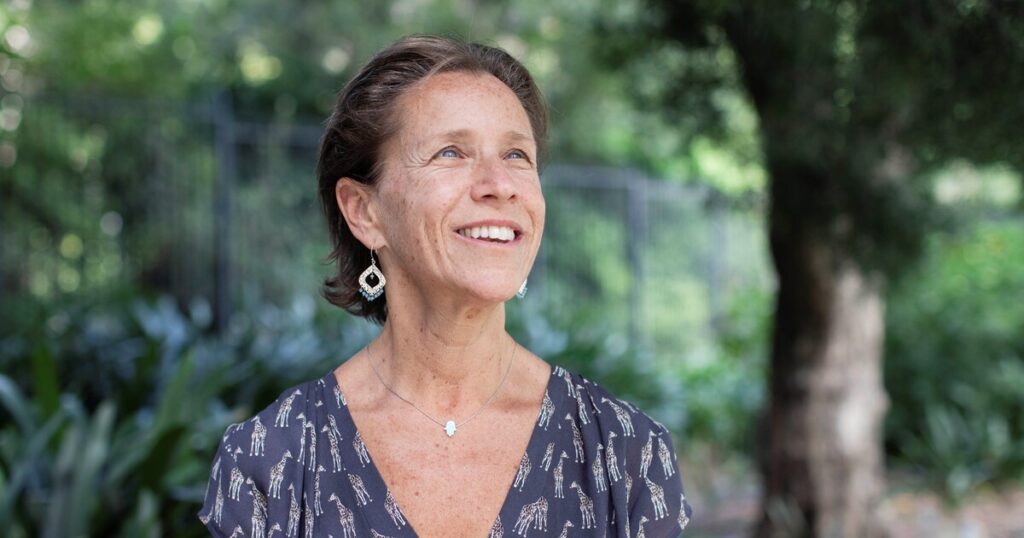
Sharon Burstin’s life mission is driven by a profound personal experience. For over half a century, she unknowingly battled a rare disease that gradually eroded her health. At 54, Sharon is legally blind, uses a white cane, and suffers from hearing loss, severe osteoarthritis, and other debilitating conditions. Her diagnosis of Refsum disease in 2022, at the age of 51, has fueled her determination to raise awareness about this obscure condition.
“No one has heard of Refsum, and that drives me crazy,” Sharon shared with newsGP. “There’s a lot you can do to slow down the progression if diagnosed early. I could have made a significant difference in my life if I had known sooner.”
Understanding Refsum Disease
Refsum disease is a rare metabolic disorder affecting approximately one in a million people in the United Kingdom, with unknown prevalence in Australia. It is caused by genetic mutations that impede the body’s ability to metabolize phytanic acid, leading to toxic accumulation in nerves, blood, and tissues. Phytanic acid is found in various foods, including dairy products, red meat, and fatty fish, as well as in chlorophyll-rich green vegetables.
The consequences of phytanic acid build-up in Refsum patients can be severe and irreversible. The disease manifests in diverse ways, with retinitis pigmentosa (RP) being the most common symptom. Other symptoms include lack of pupil dilation, deafness, cataracts, ataxia, anosmia, ichthyosis, peripheral polyneuropathy, general weakness, cardiac arrhythmias, and skeletal dysplasia. Sharon experiences nearly all these symptoms.
The Diagnostic Journey
Throughout her life, Sharon consulted numerous specialists for her various ailments, including ophthalmologists, audiologists, and orthopedic surgeons. Despite her symptoms aligning with Refsum disease, the condition remained undiagnosed for decades. “There was definitely anger that no one had joined the dots sooner,” Sharon said.
Sharon’s skeletal dysplasia, evident from birth, was an early indicator of Refsum disease. Her abnormally short first and last digits on her hands and toes were surgically corrected at age 11, yet no further investigation into her other symptoms was conducted. Her diagnosis of RP around the same time should have prompted further testing for Refsum disease, but it did not.
“If I would have had a phytanic acid test done then, that would have been very helpful,” Sharon reflected.
Dietary Challenges and Missteps
Ironically, the recommended diet for RP patients, rich in phytanic acid, is detrimental to those with Refsum disease. Sharon’s childhood diet, high in dairy products, exacerbated her condition. “I basically was a milk and cheese girl,” she recalled. “If I had known to cut out dairy, it would have made a huge difference.”
Now, Sharon adheres to a strict diet to manage her condition, avoiding foods that trigger phytanic acid production. “I had to adapt my diet significantly, ensuring I eat regularly to prevent my body from producing phytanic acid,” she explained.
Raising Awareness and Advocacy
Sharon’s story was highlighted in a research paper, “Forty-year Odyssey to Refsum Disease Diagnosis,” which reviewed 23 patients with an average diagnostic delay of 11 years. Sharon’s GP, Dr. Vicki Kotsirilos, emphasized the importance of testing for Refsum disease in patients with RP. “As GPs, if we’ve got patients with RP, we should suspect Refsum’s and have it tested,” Dr. Kotsirilos stated.
Sharon’s eventual diagnosis came through participation in the VENTURE study at the Centre for Eye Research Australia, leading to genetic confirmation of Refsum disease. A simple blood test for phytanic acid levels, which showed levels at 450 (far above the normal 0–3.5), confirmed the diagnosis.
“If only I had had that blood test when I was first diagnosed with RP, my whole life trajectory would have been completely different,” Sharon lamented.
The Path Forward
Sharon is now an active advocate, working with the global Refsum community and organizations like the DARE Foundation to raise awareness. She encourages GPs to consider Refsum disease in their diagnostic processes and to utilize simple blood tests for early detection.
“I’m hoping my awareness-raising helps others,” Sharon expressed. “Awareness will exponentially increase the chance of diagnosis and ensure people get the life they deserve.”
Sharon’s journey underscores the critical need for awareness and early diagnosis of rare diseases like Refsum, which can profoundly impact lives if left undetected.





